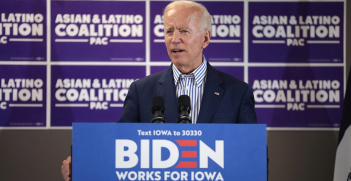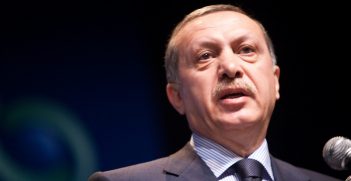Visions of the World Bank’s Future

On the weekend, World Bank President Jim Yong Kim announced a rethink of the institution’s role in international development, building upon the ‘Solutions Bank’ concept. World Bank reform is sorely needed, but it may be threatened by the unconventional leadership of its largest member.
On 21-23 April, finance and development ministers, private sector and civil society advocates, academics and journalists travelled to Washington DC to attend the Spring Meetings of the World Bank and International Monetary Fund (IMF). Discussions at the Spring Meetings cover the state of global economic instability, poverty alleviation and multilateral collaboration. They also provide insights into the future of the Bretton Woods institutions.
Recent reform
The 2017 meetings were an opportunity for World Bank President Jim Yong Kim, as he looks forward to beginning his second term in July 2017, to outline a vision for reforming the current ‘Solutions Bank’ approach. The Solutions Bank—introduced in October 2012 and building upon former President James Wolfensohn’s ‘Knowledge Bank’ and former President Robert Zoellick’s ‘Open Data’ initiative—is a new strategic identity designed to revitalise the World Bank’s relevance and legitimacy by making the institution more flexible, collaborative and inclusive.
Two new mission goals support the Solutions Bank approach: reducing extreme poverty globally to 3 per cent by 2030; and promoting income growth among the bottom 40 per cent of people. Put into practice with new lending instruments called Country Partnership Frameworks, the mission goals encourage inclusive and sustainable economic growth.
The World Bank underwent an exhaustive reorganisation—beginning in 2014—to institutionalise these reforms, seeking to make the bank quicker on the ground, to break down internal silos and to double its lending portfolio. This process received significant criticism from employees: in August 2016, an open letter from the World Bank staff association described a “crisis of leadership“.
A new agenda
During the meetings held between last Friday and Sunday, a series of World Bank seminars discussed climate change, gender-based violence, inclusive economic growth, market creation, water and sanitation (Kim and actor Matt Damon, co-founder of the non-profit water.org, led a particularly popular roundtable). The seminar topics reflected the World Bank’s new mission goals, putting poverty and inequality at the front of the development agenda, just as the IMF, OECD, African Development Bank and United Nations Development Programme have done.
The most important announcement by Kim, however, saw the World Bank double-down on private investment as the catalyst of future global economic development. Two weeks prior to the meetings, Kim declared the need to “rethink development finance“, a declaration that reappeared in his opening remarks last Thursday. The rethink places greater emphasis on private investment to lead development finance, rather than multilateral institutions such as the World Bank.
Kim advanced a three-step reform process needed for the rethink to be effective. First, revise World Bank staff incentive structures to reflect the new vision. Second, better synthesise World Bank Group activities. Third, and most importantly, change the way the World Bank thinks of itself: the bank can be a ‘strategic adviser’, which leverages its knowledge “by linking it to the vast amounts of capital that we can mobilise from the private sector”; it can also play the role of the ‘honest broker’, sitting between “the global market system and the interests of emerging countries”.
The favour shown by Kim towards private investment is unsurprising and not necessarily at odds with the new mission goals. In 2013, Kim published an article arguing that the private sector “has an essential role to play if we are to end poverty by 2030”. Given the volatility of global private capital flows, however, this announcement can be read with concern. The only salvation Kim offers is that this new approach will not be “like the bad old days of privatisation”, whereby neoliberal reform became an end rather than a means to pursuing development.
Trump looms
The Spring Meetings were inescapably shadowed by US President Donald Trump. Since his recent tweets have not mentioned the World Bank, it is difficult to ascertain what Trump thinks of the institution. Yet future tensions can be reasonably predicted, particularly given the development agency’s support for globalisation. While US Treasury Secretary Steven Mnuchin released a statement on 22 April expressing America’s continued support for the institution and applauding Kim’s development finance rethink, such official statements are at odds with informal comments emerging from the Trump camp. White House National Economic Council Director Gary Cohn, for example, advocates “tit-for-tat” trade agreements, while Secretary of Commerce Wilbur Ross said the IMF’s concerns that American protectionism would undermine global economic growth were “rubbish”.
Kim may be pursuing an agenda at odds with Trump’s own. Kim, for instance, boasted during the rethink speech that the World Bank had become the world’s largest funder of climate-related investments; Trump, on the other hand, appointed climate change sceptic Scott Pruitt to head the Environmental Protection Agency. While Kim received unqualified support from the US under the Obama administration, his second term may bring hostility. Historically, the policy views of the US president have been a significant factor: President Ronald Reagan’s condemnation of the formerly Keynesian development institution spurred the World Bank’s turn toward neoliberalism in the early 1980s.
The 2017 Spring Meetings announced a continuation of Kim’s revitalising mission ongoing since 2012. Yet one wonders what difficulties the bank may face once Trump turns his gaze towards it.
Dr Adrian Bazbauers is a sessional lecturer in the School of Government and Policy at the University of Canberra.
This article is published under a Creative Commons Licence and may be republished with attribution.





